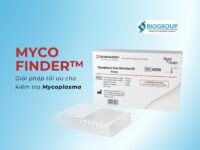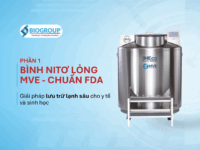Japan’s unique initiatives in replacing animal research
Unlike the West, such as the US or the EU, Japan approaches the replacement of animal research in a subtle yet profound manner. The JaCVAM center, along with initiatives from academia to industry, is gradually shaping a uniquely Japanese pathway: Integrating OECD standards, investing in organoids, and fostering international collaboration on alternative testing methods.
.png)
Contents
ToggleJapan’s policies and regulations on the 3Rs
In Japan, the management of animal use in research and testing is primarily based on voluntary guidelines rather than rigid legal regulations. The current law related to animal use is the Animal Protection and Management Law (PMA), which includes provisions requiring the avoidance of unnecessary pain for animals and encourages the use of methods that reduce pain or the number of animals used. This law indirectly addresses the 3Rs principle, but does not specifically prohibit or restrict any particular type of testing. Instead, Japan adopts a self-regulation model where each research institution using animals creates its internal regulations based on the basic guidelines issued by three ministries. Specifically, the Ministry of Education, Culture, Sports, Science & Technology (MEXT) issues guidelines for universities; the Ministry of Health, Labour & Welfare (MHLW) issues guidelines for state institutes, pharmaceutical companies, and CROs; and the Ministry of Agriculture, Forestry & Fisheries (MAFF) issues guidelines for animal breeding facilities. These guidelines are nearly identical in content, emphasizing compliance with the 3Rs and requiring each institution to establish an ethics committee to review animal experiments.
Due to the lack of a centralized licensing mechanism, Japan does not have a nationwide mandatory reporting system for animal testing statistics. Institutions are not required to report the number of animals used to the government periodically, leading to a lack of public data on animal testing. Legally, Japan has not enacted any bans on animal testing in cosmetics or specific sectors (while the EU, India, South Korea, etc., have banned cosmetics testing). Instead, the Japanese government encourages companies to voluntarily refrain from animal testing for cosmetics if alternative methods are available. The Japanese Ministry of Health has recognized eight alternative methods for cosmetic safety testing, such as skin irritation tests on virtual skin models, BCOP eye irritation tests, etc. Additionally, guidelines have been issued for industry adoption, though these guidelines are not legally mandatory.
To promote the development of alternative methods, Japan established the JaCVAM (Japanese Center for the Validation of Alternative Methods) in 2005, which is affiliated with the National Institute of Health Sciences (NIHS) and the Ministry of Health. JaCVAM’s mission is to promote the 3Rs in chemical safety evaluation, develop guidelines for new alternative methods through international cooperation, and serve as a focal point for the validation of alternative tests and their approval into OECD standards or Japanese regulations. Thanks to the efforts of JaCVAM and its partners, Japan has approved many international in vitro methods in its JIS/ISO testing standards, such as the EpiDerm skin irritation test using human skin samples, the Ames test on bacteria as a replacement for animal cancer tests, and others.
Although Japan does not have a specific roadmap for phasing out animal use like the EU, the government has shown long-term direction in line with global trends. In 2021, Japanese agencies signed the ICATM Memorandum of Understanding, collaborating with ICCVAM (USA), EURL ECVAM (EU), and KoCVAM (South Korea) to harmonize the recognition of alternative methods internationally. Japan also sponsors the International Conference on Alternative Science (WC) and the Asian 3Rs Conference to exchange regional knowledge. However, experts note that Japan’s progress in this area has been slower than the West due to the lack of legal pressure and low public interest. A 2023 report indicated that the alternative testing technology market in Japan was worth around 60 million USD in 2019, with an expected growth rate of 4% annually, which is not yet groundbreaking. Legal researchers in Japan are calling for animal testing law to be included in law and policy education to raise awareness and prepare for stricter legal frameworks in the future.
Related article: “Non-animal research trends & how the US is embracing the shift”
Trends and technological advances in animal research replacement in Japan
Japan has a developed experimental science base, so it has also achieved some results in alternative animal research methods, despite its different approach from the West:
Validation and acceptance of alternative methods through JaCVAM
JaCVAM has evaluated several in vitro/in silico methods and proposed them to the OECD. For example, the EpiSensA test (detecting skin sensitizers based on human skin samples and gene expression analysis) was co-validated by JaCVAM and later approved by the OECD in Guideline 442D in 2024. Similarly, the SENS-IS test (identifying skin allergens through gene expression) was also evaluated by JaCVAM experts. Japan has integrated these OECD alternative tests into its chemical evaluation system, applying them to both cosmetics and industrial chemicals. In the pharmaceutical field, JaCVAM works with departments of the PMDA (Pharmaceuticals and Medical Devices Agency) to review alternative method data. However, PMDA still requires animal testing data for many new drugs due to international regulations (ICH) that have not changed.
Nevertheless, some pioneering cases have emerged. In 2022, PMDA agreed for the first time that a pharmaceutical company could submit liver toxicity prediction data using a computer model instead of conducting further animal tests, after demonstrating the model’s high accuracy on old drug data. This is a small but positive step showing Japan’s willingness to consider non-animal evidence.
Academic research on organoids and microchips
Top Japanese universities (Tokyo, Kyoto, Osaka) are investing in organoid research for regenerative medicine and drug testing. The 3D brain organoid developed by Kyoto University has been used to study the effects of anti-epileptic drugs, yielding data consistent with clinical observations in humans. This confirms the potential to replace mouse models in drug screening for neurological diseases. At the University of Tokyo, Professor Shoji Takeuchi is famous for creating “artificial organs-on-chip,” including a recent heart-on-chip model that allows in vitro testing of cardiovascular drug safety. These biosensor devices help reduce the number of animals needed in the drug candidate selection process. Although not yet integrated into standard protocols, Japanese pharmaceutical companies have begun collaborating with university laboratories to assess the economic and scientific efficacy of organ-on-chip technology.
Domestic industrial cooperation
Japan’s cosmetics industry has proactively adapted to the “cruelty-free” trend. The Japan Cosmetic Industry Association (JCIA) has funded alternative method development projects and awarded scholarships to the Japan Society for Alternatives to Animal Experiments (JSAAE) since 2018. For example, Mandom Corp. annually funds research projects for alternatives to animal testing (this program has been in place since 2008). As a result, in 2019, JCIA-supported scientists successfully created a 3D human skin model in Singapore (in collaboration with A*STAR), providing an Asian Skin Model suitable for testing Asian products. Industry involvement helps bring new methods to market faster. For example, Kao Corp and Shiseido have announced the cessation of all animal testing for cosmetics and switched to using artificial skin and toxicity simulations for safety testing. In pharmaceuticals, major companies like Takeda and Daiichi-Sankyo have begun investing in high-performance computing (HPC) and AI to simulate drug screening, partly to reduce reliance on animal testing in the early stages.
Participation in international networks
Japan actively engages with the international community to harmonize standards. Since 2009, JaCVAM has signed agreements with ICCVAM, ECVAM, and Health Canada to establish the ICATM network. In 2011, KoCVAM from South Korea also joined, creating an Asia-Europe-America forum on alternative methods for animal research. Japanese experts have contributed to the development of OECD guidelines, such as co-chairing the development of OECD Guideline 497 – integrated methods for skin sensitization assessment, through 2021. Participation in international discussions allows Japan to stay ahead of trends. For example, Japan adopted the concept of “defined approaches” from the 2016 ICATM seminar and quickly updated its guidelines when the OECD issued new 2021 guidance allowing the combination of multiple alternative tests to eliminate animal testing in skin allergy assessments. These efforts are gradually improving Japan’s regulatory framework. It is expected that in the coming years, Japan will update some New Drug Application (NDA) guidelines to allow the use of integrated toxicity prediction models (based on the FDA’s ISTAND experience). This will depend on the success of the FDA and ICH in formally recognizing NAMs.
Japan is gradually integrating the global trend of replacing animal research, although the path is cautious. The lack of mandatory regulations has slowed progress, but with increasing worldwide pressure and clearer scientific evidence, Japan is likely to accelerate its pace post-2025. JaCVAM’s role and international collaboration will continue to be key for Japan’s transition to “human-based” methods in vaccine research, pharmaceuticals, and related industries.
Contact information:
- Website: https://biogroupvietnam.com/public/lien-he
- Hotline: +84 963 621 421
- Email: info@biogroupvietnam.vn
Referencing animal research alternatives from STEMCELL Technologies
References
- Johns Hopkins University Toxicology Policy Research. (n.d.). The Law for the Protection of Animals and alternative methods in Japan. Retrieved from https://www.jhutoxicologypolicyresearch.org/tox-blog/blog17
- ChemLinked. (n.d.). Exploring the use of animal testing in Japanese cosmetics. Retrieved from https://cosmetic.chemlinked.com/expert-article/exploring-the-use-of-animal-testing-in-japanese-cosmetics
- GlobeNewswire. (2024, June 10). Animal testing and non-animal alternative testing: Global market opportunities and strategies to 2035. Retrieved from https://www.globenewswire.com/news-release/2024/06/10/2895973/28124/en/Animal-Testing-and-Non-Animal-Alternative-Testing-Global-Market-Opportunities-and-Strategies-to-2035.html
- Japanese Center for the Validation of Alternative Methods (JaCVAM). (n.d.). Policy and mission. Retrieved from https://www.jacvam.go.jp/en/
- National Toxicology Program, NIEHS. (n.d.). International cooperation on alternative test methods. Retrieved from https://ntp.niehs.nih.gov/whatwestudy/niceatm/iccvam/international-partnerships/icatm
- Japan Chemical Industry Association (JCIA). (n.d.). Alternatives to animal experiments. Retrieved from https://www.jcia.org/en/approach/safety/alternatives-to-animal
- Mandom Corporation. (n.d.). Approach to alternatives to animal testing. Retrieved from https://www.mandom.co.jp/en/sustainability/comm_animal.html
- Faunalytics. (n.d.). The current state of animal testing for cosmetics in Indonesia, Malaysia, and Singapore. Retrieved from https://faunalytics.org/the-current-state-of-animal-testing-for-cosmetics-in-indonesia-malaysia-and-singapore
Categories
- Blog (53)
- New Products & Technologies (42)
- News (41)
- Recruitment (7)
- Training & Webinar (27)
- Virtual Booth (1)



